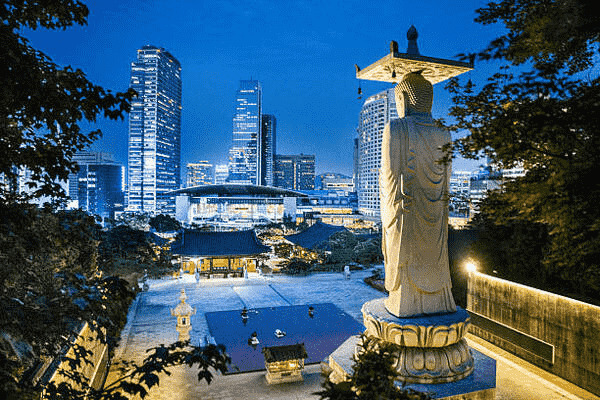Published on
August 7, 2025 |
By: TTW News Desk
In response to mounting complaints from foreign visitors and growing concerns over overtourism-related misconduct, South Korea has launched a sweeping new 100-day crackdown in Seoul to stop taxi drivers from overcharging, refusing short-distance rides, and exploiting international tourists. With tourist arrivals surging and the capital city’s transport system under pressure, authorities are intensifying efforts to restore trust and improve the travel experience by targeting illegal taxi practices at major tourist hubs, airports, and downtown districts — a move seen as essential to protecting the country’s global image during its peak travel season.
South Korea Launches 100-Day Crackdown on Taxi Scams Targeting Foreign Tourists in Seoul
In a bold move to enhance the travel experience for international visitors, South Korea has launched a comprehensive 100-day crackdown on illegal taxi practices in Seoul, aimed specifically at curbing the mistreatment of foreign tourists. The initiative, announced on August 6 by the Seoul Metropolitan Government, is designed to address long-standing complaints about overcharging, tip extortion, and service refusal, particularly at major entry points and tourism hotspots across the capital.
Aiming to Protect the Nation’s Image During Tourism Peak
With international arrivals to South Korea steadily rebounding, city officials have prioritized this campaign as part of broader efforts to build a reputation for tourist-friendly services in the lead-up to the peak autumn travel season. According to Seoul’s transportation department, the crackdown will focus on illegal taxi operations at major tourist sites, including Myeong-dong, Gwanghwamun, Dongdaemun, and high-traffic zones like Incheon International Airport and Gimpo Airport.
Key violations being targeted include:
Charging exorbitant fares beyond metered ratesDemanding unsolicited tips from touristsRefusing rides deemed too short or unprofitableDeliberately taking detours to inflate fare amountsOffering illegal services to unsuspecting visitorsCity Staff to Monitor Hotspots for Offenders
To enforce this campaign, Seoul civil servants will be deployed in key parts of the city where tourist complaints have been most concentrated. City officials will conduct undercover surveillance operations to catch violators in the act. Areas around Seoul’s central districts, airports, and hotel zones will receive heightened scrutiny, especially during nighttime hours when tourists are more vulnerable to price manipulation.
Transportation office head Yeo Jang-kwon emphasized that the goal is not just punishment but prevention. “This 100-day operation is a proactive measure to improve Seoul’s public image and tourist satisfaction,” he stated. “By correcting the behavior of taxi operators now, we aim to foster long-term improvements in the city’s transportation culture.”
A Response to Growing Complaints from Tourists
This initiative is not without context. According to city data, 139 instances of taxi overcharging and 109 refusals of service to foreign passengers were reported at airports near Seoul in the first half of the year alone. These figures represent just a fraction of the total violations, as many incidents go unreported.
While sporadic enforcement campaigns have been held since 2015, this new 100-day effort is the most concentrated and publicly promoted to date. It reflects Seoul’s renewed commitment to positioning itself as a premium global travel destination—especially amid competition from neighboring countries like Japan and Thailand that are also ramping up tourism reform.
How Tourists Can Report Taxi Violations
In an effort to involve travelers directly in the campaign, multilingual reporting tools have been introduced at Incheon and Gimpo Airports. Small card-sized survey slips, available in English, Chinese, and Japanese, are distributed at information counters and taxi stands. Each card contains a QR code that leads to a mobile-friendly reporting form where tourists can submit complaints about their taxi experience in real-time.
The city has also encouraged travelers to document evidence—such as license plate numbers, driver photos, and fare receipts—when filing reports. These submissions are reviewed promptly and can result in disciplinary action, including fines or suspension of taxi licenses.
What Tourists Need to Know About Fares
To help visitors navigate with confidence, here’s a quick guide to Seoul’s standard taxi fare system:
Base fare for a standard taxi up to 1.6 kilometers: ₩4,800 (around $4.50)Additional charge: ₩100 for every 131 metersNighttime base fare: Ranges from ₩5,800 to ₩6,700, depending on the hour
Tourists are advised to ensure meters are switched on at the start of the journey and to avoid unlicensed or unofficial taxi services that often loiter near major hotels and airports.
South Korea’s Broader Vision for Tourism
This taxi initiative is just one of many measures under South Korea’s national tourism revival strategy, which includes improving foreign language signage, expanding digital payment options for foreign cards, and building smart information kiosks at city attractions.
With travel demand on the rise, Seoul is working hard to ensure that the quality of its ground services matches the richness of its cultural offerings. Authorities hope that by eliminating petty scams and service discrimination, the capital will see stronger return visitor numbers and higher tourist satisfaction rankings globally.
As the 100-day countdown begins, South Korea is sending a clear message: the country values its guests—and will take decisive action to ensure they are treated fairly.
